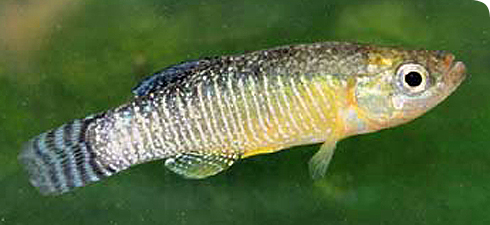Aphanius iberus (Spanish toothcarp)
Aphanius iberus the Spanish or Iberian toothcarp or fartet, is a small, sexually dimorphic fish, restricted to the eastern Spanish coastline.
Aphanius iberus is classified as Endangered and faces threats relating to its limited and isolated distribution as well as a range of threats to its habitat.
Species detail
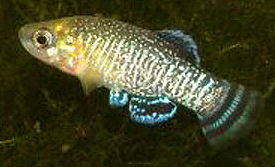
A male Aphanius iberus
Aphanius iberus is sexually dimorphic.
Adult males show a coloration pattern characterized by narrow silver transversal bars along the body side, which are continued on the caudal fin (3-4 bars).
Females show numerous small dark spots on the body flanks which tend to form rows, one of them along the lateral line.
-

Taxonomy
Learn about the form and structure of this species and get a description of its distinguishing features.
-

Distribution
Find out the areas of the Spanish coastline that Aphanius iberus is restricted to. Read about previous observations regarding its distribution range and how these led to a new species being described.
-

Biology
The biology of Aphanius iberus is characterized by fast growth and reduced longevity. Find out more about the biology of this species, including information regarding its size, life expectancy and physiology.
-

Conservation
Discover the conservation status of the Iberian toothcarp and the range of threats facing its survival.
-

References
Get reference material for Aphanius iberus.
Images
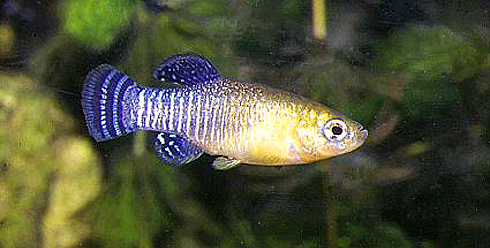
Aphanius iberus
© Carlos González Revelles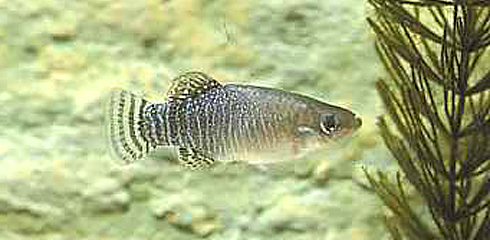
Aphanius iberus
© Carlos González Revelles
Aphanius iberus
© Carlos González Revelles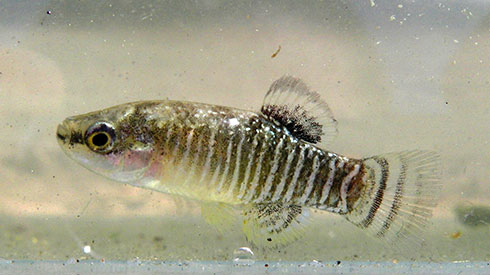
Aphanius iberus
© Matt FordAbout the author
Javier García-Alonso
Former Postgraduate Research Assistant, Trace Metal Research Group, Department of Zoology.
